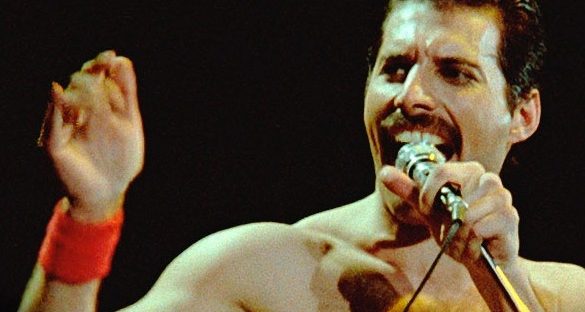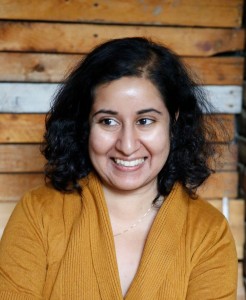
By Guest Contributor: Lakshmi Gandhi (@LakshmiGandhi)
Before journalist Jarrett Hill broke the story of Melania Trump’s alleged plagiarism of Michelle Obama’s famous 2008 convention speech, it looked like one of the biggest social media moments of the night was the shock and dismay of music fans everywhere as Donald Trump entered the convention stage to the sounds of Queen’s ‘We Are The Champions.’
Reaction to Trump’s music choice was swift.
https://twitter.com/farai/status/755226599935598592
https://twitter.com/markham/status/755227408362504192
Freddie Mercury spinning so hard in his grave it just caused a G-force. #RNCinCLE
— Carla Collins (@Carla_Collins) July 19, 2016
(It should be noted that Mercury doesn’t actually have a grave. He was cremated after his traditional Parsi funeral in 1991. More on that later.)
The surviving members of Queen quickly let it be known that the convention’s use of the song was unauthorized.
An unauthorised use at the Republican Convention against our wishes – Queen
— Queen (@QueenWillRock) July 19, 2016
But perhaps the sharpest criticism came from California Lieutenant Governor (and Hillary Clinton surrogate) Gavin Newsom, who was quick to connect the many ways Mercury’s biography directly contrasted with the official GOP platform.
#FreddieMercury pic.twitter.com/fBZ5HghQ4W
— Gavin Newsom (@GavinNewsom) July 19, 2016
“Freddie Mercury died of AIDS in 1991. His music was played at a convention where the most anti-LGBT policy platform was adopted, just today,” Newsom’s statement read in part. “I’m not sure what Freddie Mercury would think of his music being played at the RNC convention, but I do know that if he weren’t a famous rockstar, he would have probably been greeted by a wall, a really high wall, because he represented everything that Mike Pence and Donald Trump are scared of.”
While everything in Newsom’s post is 100% true, he neglected to mention two other aspects of Mercury’s life that RNC convention-goers have overlooked: his ethnic background and his unique immigration story.
Born as Farrokh Bulsara in 1946, Mercury was raised in Zanzibar by his Indian Parsi parents before being sent to boarding school in Bombay. It was there that he joined his first band, The Hectics and obsessively watched Bollywood movies. While many music historians have argued that Freddie’s adolescence in India had a deep impact on his musical career, the singer himself downplayed his roots throughout his life.
“Freddie did play (being Indian) down a bit,” Queen drummer Roger Taylor once said. “I think it was because he felt people wouldn’t equate being Indian with rock and roll.”
Music fans at the time probably also didn’t consider immigrants who fled political unrest to be particularly rock and roll either. A teenage Freddie would rejoin his parents and sister in 1964 as the family fled to England during the 1964 Zanzibar revolution.
This excellent 2011 segment from BBC’s The One Show perfectly puts the Bulsara family’s migration into historical context (and also visits Freddie’s first home in an immigrant neighborhood outside of London.)
“It was very hard in the beginning,” Freddie’s mother Jer told The One Show. “I had told my children, ‘It is not going to be easy, we all have to work together.'”
And as the segment above notes, the Bulsara family’s arrival in England coincided with a wave of anti-immigration sentiment at the time, with newspaper editorials and programs accusing the many recently arrived Indian immigrants of taking jobs from English people. Today, the official platform of the RNC echoes much of that earlier anti-immigrant, nativist, and anti-Asian rhetoric, even while it also reinforces the Conservative Right’s anti-LGBT stances. The Good Ol’ Party’s newly crowned nominee is even on camera making an open mockery of Indian accents from the podium of a mainstream presidential election campaign.
Given all of this, Newsom’s allusion to Trump’s wall as something that would have been built to keep Freddie Mercury out is probably more accurate than either of them originally imagined.

Lakshmi Gandhi is a journalist and pop culture writer based in New York. Her work has appeared in Metro New York, NBC Asian America and NPR’s Code Switch blog, among other sites. She likes it when readers tweet her @LakshmiGandhi with their thoughts on Asian American issues and romance novels.
Learn more about Reappropriate’s guest contributor program and submit your own writing here.
